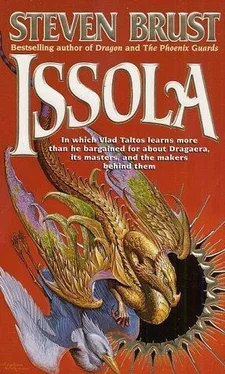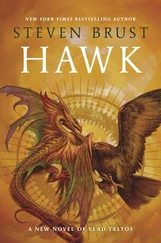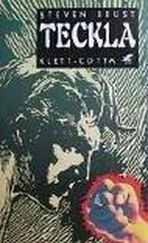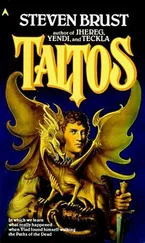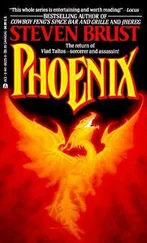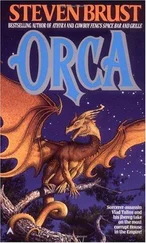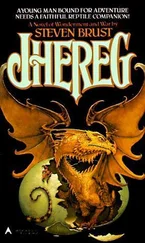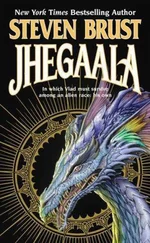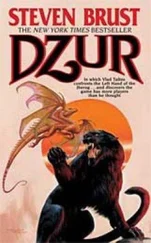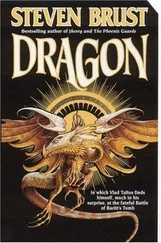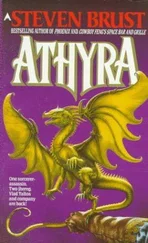Steven Brust - Issola
Здесь есть возможность читать онлайн «Steven Brust - Issola» весь текст электронной книги совершенно бесплатно (целиком полную версию без сокращений). В некоторых случаях можно слушать аудио, скачать через торрент в формате fb2 и присутствует краткое содержание. Жанр: Книги. Описание произведения, (предисловие) а так же отзывы посетителей доступны на портале библиотеки ЛибКат.
- Название:Issola
- Автор:
- Жанр:
- Год:неизвестен
- ISBN:нет данных
- Рейтинг книги:3 / 5. Голосов: 1
-
Избранное:Добавить в избранное
- Отзывы:
-
Ваша оценка:
- 60
- 1
- 2
- 3
- 4
- 5
Issola: краткое содержание, описание и аннотация
Предлагаем к чтению аннотацию, описание, краткое содержание или предисловие (зависит от того, что написал сам автор книги «Issola»). Если вы не нашли необходимую информацию о книге — напишите в комментариях, мы постараемся отыскать её.
Issola — читать онлайн бесплатно полную книгу (весь текст) целиком
Ниже представлен текст книги, разбитый по страницам. Система сохранения места последней прочитанной страницы, позволяет с удобством читать онлайн бесплатно книгу «Issola», без необходимости каждый раз заново искать на чём Вы остановились. Поставьте закладку, и сможете в любой момент перейти на страницу, на которой закончили чтение.
Интервал:
Закладка:
“Really? I’ve never considered Morrolan to be self-centered.”
“He isn’t,” said Teldra. “Not as the term is usually meant. There is a subtle but important difference, Vlad, between thinking only of yourself, and seeing the world as it affects you.” She smiled suddenly. “And the difference, by the way, is exactly what courtesy is all about.”
“You’ll have to explain that to me.”
“Do I, Vlad? I somehow doubt that.”
“Oh?”
“Oh. But, very well. Morrolan is generous, and self-sacrificing, and always glad to be of help to a friend, but sometimes he sees things first from how they affect him. It means he will sometimes go into a situation wondering what he should do, rather than wondering what needs to be done.”
“That’s pretty subtle, Teldra.”
“Not as subtle as you might think. Or, rather, it is a case where subtleties can become very large. Sometimes, for example, you step into a situation where the thing that needs to be done is nothing at all; someone looking at it from his own perspective is unlikely to realize this.”
I made a noncommittal sound, trying to work it all out.
“I know of one case late in the Interregnum – because Lord Morrolan told of it himself—where he was a division commander under Sethra. He was, he says, an effective commander, but he had the bad habit, when given an order, of sending back suggestions to Sethra about what she should do with the rest of the army to support him, not quite able to realize that she might have thought of these things, and that it was she who had the best view of the entire picture, and was placed to make those decisions. The result was a small increase in friction among the staff, and a series of delays in carrying out her orders. His intentions were good, but he was seeing everything from his own perspective.”
“Hmmm,” I said. “Okay, I see your point. And, yeah, Morrolan is like that, sometimes. So is Aliera, for that matter.”
“Yes, she is also a young Dragon.”
“Which, of course, is part of why they keep knocking heads, notwithstanding my juvenile outburst earlier.”
“Of course.”
I shrugged. “Well, okay, I’m glad we settled that. What are young Issola like?”
Teldra flashed me a smile. “Obsequious to the point of irritating, or else timid to the point of invisibility. What about young Easterners?”
“Brash, cocky, and convinced we can beat anything that walks, flies, or swims, and that we know all the answers to everything.”
“Rather like Dzur, then.”
“I guess. I’m generalizing from one example, here, but everyone generalizes from one example. At least, I do.”
That earned an actual chuckle; I felt very proud.
I added, “Of course, by Dragaeran standards, all Easterners are young Easterners.”
“Yes. Which is only one of the reasons Easterners are treated the way they are by humans.”
“Morrolan is an exception; he deserves credit for that. As are you, by the way.”
“Thank you,” said Teldra. “In my case, I can’t help it, it’s how I was raised.” She smiled.
There were footsteps in the hall, and I knew it was Sethra before she appeared, either because I recognized her footsteps, or because of some subtle psychic awareness of her that I was developing. She nodded to us and said, “Have you two solved all of our questions of grand strategy for us?”
“No,” I said, “but we’ve solved a great deal of the mystery of the mysterious Morrolan.”
“I’m impressed,” said Sethra, sitting down in an oversized chair to my left. “That’s much more difficult.” It seemed to me, watching her sit, that she was tired. I guess she’d been busy enough while we were away.
I said, “You reached the Necromancer?”
Sethra nodded. “She’ll be along directly.”
I tried to say, “Good,” but couldn’t force the word past my lips, so I settled for the old brusque nod. Sethra glanced at my arm and said, “Any change?”
“About five or six minutes ago it twitched a little. Hardly anything; I was talking to Teldra and barely noticed it.”
“Very well,” she said. “That’s probably a good sign. The muscles are coming back to life, which means, among other things, that they aren’t entirely dead.”
“You thought they might be?”
“It was a possibility.”
“Why didn’t you tell me?”
“What good would it have done you?”
“It would have given me a good excuse to have a hissy-cow right when I badly wanted to have one.”
“A hissy-cow?”
“Uh ...”
“No, no, Vlad. Don’t explain.” She chuckled. “A hissy-cow I think I like that,”
I had gotten a chuckle out of Teldra and Sethra within the same hour, and that after making Teldra and Aliera blush, and before that I’d managed to shock the Demon Goddess. My life was now complete. I decided this was a good time to quit, so I leaned back and closed my eyes, only to be interrupted by the sound of more footsteps. I didn’t want to open my eyes, for fear that the Necromancer would be there, so I did and she was.
You must understand, it isn’t that I’m afraid of her. I’ve spoken with her, and, if you can get past the fact that she’s undead, and that her mind is perfectly comfortable living in places that would drive me mad, and that for her the distinction between the living and the dead is just a matter of which way she’s facing, she’s a perfectly decent sort, as Dragaerans go. It’s just that her showing up just then meant that things were liable to start moving, and I was very happy sitting on a couch in Dzur Mountain, feeling relatively at peace with the world, and luxuriating in the notion that no one, just at that moment, would be able to kill me.
“The technical term is ‘self-pity,’ Boss.”
“Did I ask for the technical term?”
“Hello, Vlad,” said the Necromancer, in that strange, almost hollow-sounding voice of hers, with her eyes looking more through me than at me.
“Hello,” I said, resisting the urge to growl.
Aliera was standing next to her, and nodded me a cool hello. “How’s the arm?” she said.
“It twitched.”
“Good,” said Aliera. “I was hoping it would do that.”
Bloody great.
Sethra said, “Have you explained what we require of the Necromancer?”
“No,” said Aliera. “I thought I’d leave that to you.”
“Very well. While I do so, I think you know what your next task is.”
“Yes,” said Aliera. “I shall attend to it at once.”
Sethra nodded, and Aliera took two steps forward, one step to the side, and vanished as if she had stepped through an invisible doorway.
Sethra Lavode turned to the Necromancer, and I suddenly had the feeling that I was present at one of those great historical moments that you read about, wishing you were there. Here was the Enchantress of Dzur Mountain explaining to the Necromancer the plan of campaign against the ancient enemies of the Dragaeran race. This might be one of the great turning points in the history of the Empire. It seemed incumbent on me to say something to undercut to the whole significance of it, but nothing came to mind.
The two pale, black-clad undead women regarded each other—thin faces, ancient eyes; sort of a strange mirror image. Sethra was perhaps a little taller, and her hair was a bit darker and longer; the Necromancer gave the appearance of a little more age, though this was illusory. In addition, though I knew Sethra was a vampire, the Necromancer looked like one—so pale, wasted, drawn; like someone in the last stages of some horrible disease.
“We are expecting an attack from the Jenoine,” said Sethra.
“Where?”
“The site of Adron’s Disaster.”
Читать дальшеИнтервал:
Закладка:
Похожие книги на «Issola»
Представляем Вашему вниманию похожие книги на «Issola» списком для выбора. Мы отобрали схожую по названию и смыслу литературу в надежде предоставить читателям больше вариантов отыскать новые, интересные, ещё непрочитанные произведения.
Обсуждение, отзывы о книге «Issola» и просто собственные мнения читателей. Оставьте ваши комментарии, напишите, что Вы думаете о произведении, его смысле или главных героях. Укажите что конкретно понравилось, а что нет, и почему Вы так считаете.
